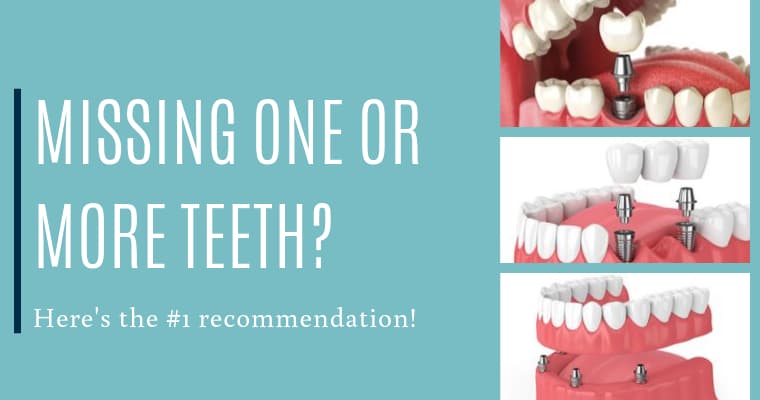All About Dental Sense
The smart Trick of Dental Sense That Nobody is Discussing
Table of ContentsWhat Does Dental Sense Mean?The Ultimate Guide To Dental SenseDental Sense Things To Know Before You BuyThe Main Principles Of Dental Sense
are clinical devices operatively implanted right into the jaw to recover an individual's capability to chew or their appearance. They provide assistance for artificial (phony) teeth, such as crowns, bridges, or dentures. When a tooth is shed because of injury or disease, a person can experience complications such as quick bone loss, malfunctioning speech, or modifications to chewing patterns that result in pain.Dental implant systems include an oral implant body and oral implant abutment and might likewise include a joint addiction screw. Dental implants. The oral implant body is surgically inserted in the jawbone in place of the tooth's origin. The dental implant joint is generally connected to the implant body by the abutment addiction screw and prolongs via gums right into the mouth to support the affixed man-made teeth
(https://www.gaiaonline.com/profiles/dentalsense1/46992240/)Framework of The Dental Implant System selecting dental implants, speak with your dental company regarding the prospective benefits and risks, and whether you are a candidate for the treatment. Things to think about: Your general health and wellness is an essential aspect in identifying whether you are a good candidate for oral implants, just how long it will certainly take to heal, and how much time the dental implant may remain in place.
Smoking might influence the healing process and decrease the lasting success of the dental implant. The healing process for the dental implant body may take several months or longer, throughout which time you commonly have a short-lived abutment instead of the tooth. the oral implant procedure: Carefully adhere to the oral hygiene guidelines provided to you by your oral provider.
Dental Sense Fundamentals Explained
Implant failure can cause the need for an additional operation to deal with or replace the dental implant system. Recovers the ability to chew Recovers cosmetic appearance Aids keep the jawbone from diminishing because of bone loss Preserves the health and wellness of the bordering bone and gums Assists maintain surrounding (nearby) teeth steady Improves top quality of life Damage to surrounding natural teeth throughout implant placement Injury to the surrounding cells during surgery, such as sinus perforation Injury during surgical procedure (for instance, fracture of surrounding jawbone) Insufficient feature, such as seeming like the teeth do not attack together typically A feeling that the tooth hangs or twisting in position resulting from an abutment screw loosening Implant body failure (looseness of the implant body) due to systemic infection, which may be more probable in individuals with unchecked diabetes mellitus due to local infection in bone and gums supporting the implant body due to delayed healing, which may be more likely in individuals who smoke Problem cleaning up the periodontals around the dental implant, causing inadequate oral hygiene Untreated periodontal disease Post-surgical pins and needles due to nerve impingement or damage Constantly alert wellness treatment service providers and imaging specialists that you have dental implants prior to any kind of magnetic vibration imaging (MRI) or x-ray procedures.
FDA is not knowledgeable about any adverse occasions reported for MRI or x-ray treatments with dental implants. Dental implants systems are generally made of products that comply with worldwide agreement standards of the International Company for Standardization (ISO) or ASTM International. These criteria have details of what makes a safe product.

An oral implant is a framework that replaces a missing tooth. With screw-like gadgets, the doctor inserts an implant into the jawbone, and it acts as an anchor for a fabricated tooth, called a crown.
Everything about Dental Sense
Some people are not eligible for dental implant surgical treatment. It is for oral doctors to operate on people with: severe illnessuncontrollable metabolic diseasebone or soft tissue disease or infectionIf these issues are dealt with, a person can have the surgery. In, oral doctors avoid operating on people with: If people with any of the above go through dental implant surgical treatment, there is a higher danger of the implant failing.

Dental implant surgery is an individualized procedure. It's not the exact same for everybody. The adhering to offers a general summary of what you can expect your dental expert, dental surgeon, periodontist or prosthodontist to do: Place the implant surgically. Give you time to heal. Attach the message and final crown, bridge or denture.
Next, your specialist will carefully place the oral implant right into your jaw. Ultimately, your cosmetic surgeon will certainly rearrange your periodontals and shut the cut with stitches. If your dental implant is near the front of your mouth, your dental practitioner will certainly make a momentary tooth for you to use up until you heal. By doing this, you won't have a gap in your smile while you recoup.
The Main Principles Of Dental Sense
During the recovery stage, your jawbone ought to fuse to the dental implant. This procedure can take anywhere from three to 9 months.
As soon as your implant heals, your dentist can connect the joint (small adapter post) and your last repair (crown, bridge or denture). This typically takes concerning one hour to finish and may need a 2nd small surgical treatment. You should not feel any type of pain during your oral implant treatment because your copyright will utilize medicine to numb your gums.